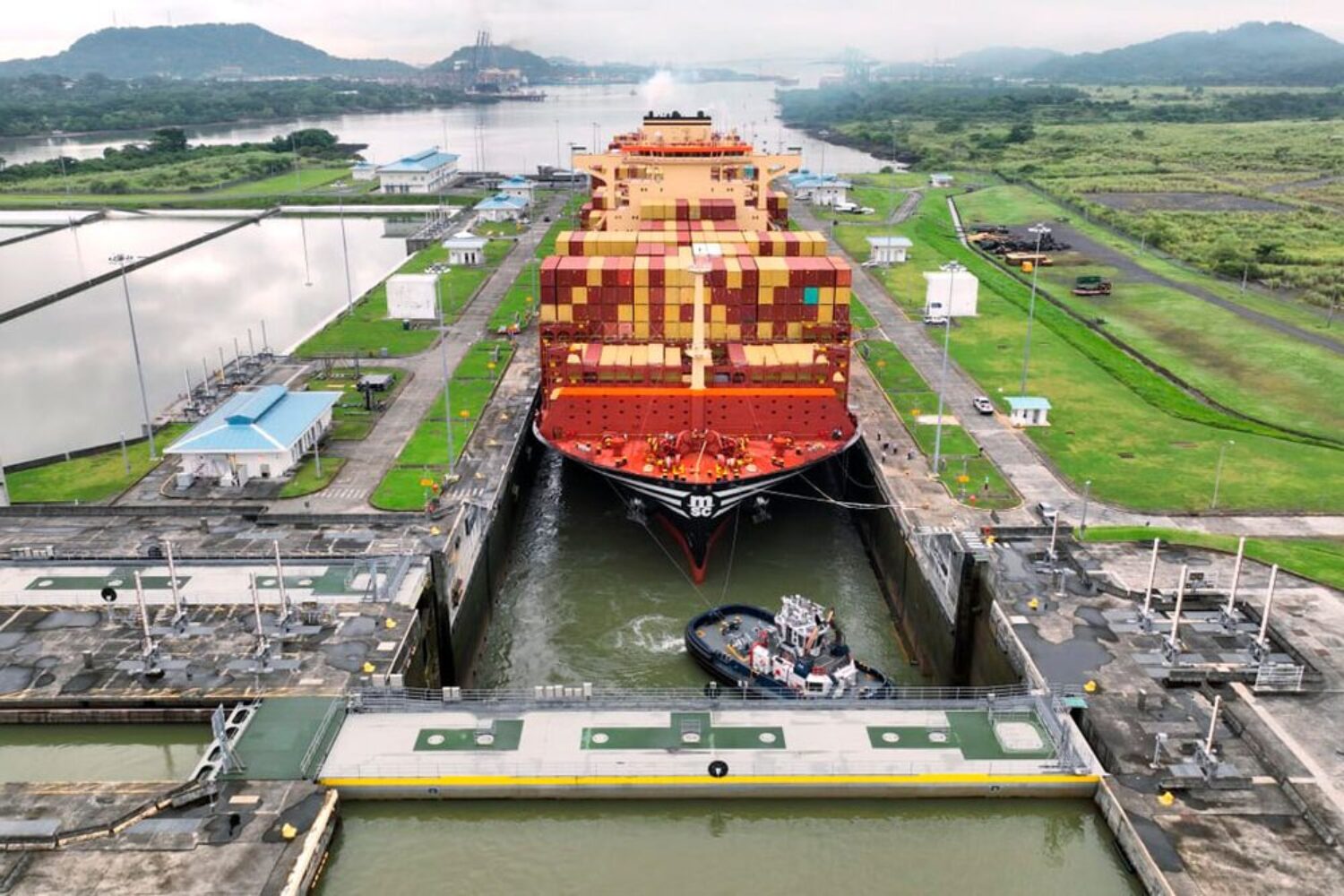According to the Financial Times, China’s state-owned shipping group Cosco wants to take a stake of at least 20 to 30% in a $23 billion (around €21 billion) port deal involving strategic assets on the Panama Canal.
Beijing is thus entering into ongoing negotiations, which were originally initiated by CK Hutchison and were publicly applauded by US President Donald Trump in March. At the time, Trump praised the fact that the deal would return control of the canal to the US and referred to his friendship with Larry Fink, the head of the US financial company BlackRock, which is the main investor in the two terminals in Balboa and Cristobal.
China is pushing for the deal and the USA is reacting sharply
Why does the Middle Kingdom want to get involved in this highly political deal now of all times? According to reports, Beijing only allowed Cosco into the talks in order to secure its negotiating position. Is this less about economic synergies and more about geopolitical influence? China demands that a Chinese company must be involved in order to protect its own trade interests.
The USA sees things differently. On August 6, the US ambassador to Panama, Kevin Marino Cabrera, declared that Washington supported the legal steps taken by the Panamanian Court of Auditors to annul the concession. Cabrera described Hutchison as a “bad operator” that was not fulfilling its contractual obligations and owed the country money. He went even further and established a direct link to the Chinese Communist Party – even though Hutchison is based in Hong Kong and company founder Li Ka-shing has come into conflict with Beijing several times in the past.
So how justified are these accusations? Hutchison rejects them and emphasizes that it has met all legal requirements since 1997 and has invested over €1.54 billion in the facilities. This is far more than the €45.5 million originally demanded and the €910 million subsequently agreed. This has also been confirmed by Panama’s Court of Auditors.
Open questions regarding the structure and transparency of the negotiations
Another critical point is the structure of the deal, which consists of two parts. Firstly, the sale of 41 ports worldwide outside of China, in which MSC’s Terminal Investments is the leading buyer. Secondly, the acquisition of the Panamanian terminals by a consortium led by BlackRock. There is also talk of a variant in which Cosco only acquires the global port package without the two Panamanian terminals. But can a bidder be successful at all if China does not agree? According to the Financial Times, a deal without Beijing’s consent is unlikely to be realistic.
The uncertainty is attracting other interested parties. CMA CGM has expressed interest in parts of the facilities, while Maersk is keeping a close eye on the process. However, neither has yet been invited to the talks. This raises the question of whether the negotiations are actually being conducted openly or whether they are being dominated by geopolitical power blocs.
While the shipping industry is following developments closely, one thing is certain: the battle for control of the ports on the Panama Canal has long been more than just a business deal. It is a geopolitical showdown in which economic interests, national security concerns and diplomatic power games are inextricably intertwined.













